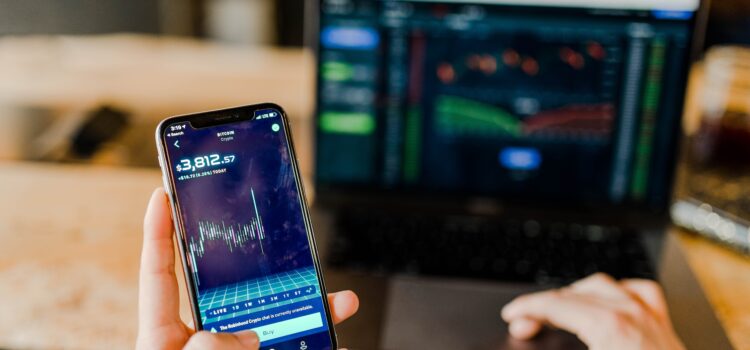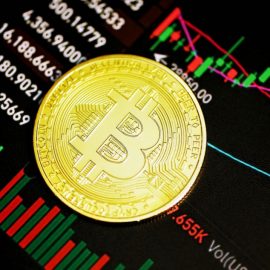

This article is an excerpt from the Shortform book guide to "The Sovereign Individual" by James Dale Davidson and Lord William Rees-Mogg. Shortform has the world's best summaries and analyses of books you should be reading.
Like this article? Sign up for a free trial here.
What’s the impact of the virtual economy on commerce? To what extent have digital currencies replaced fiat currencies?
In the 1990s, James Davidson and William Rees-Mogg predicted that the virtual economy would overtake physical economies. In their book The Sovereign Individual, they discuss what that would mean for the economy as a whole and for civilization in general.
Keep reading to learn Davidson and Rees-Mogg’s predictions about the virtual economy and, in retrospect, see how close they got.
Predictions About the Virtual Economy
Writing in the 1990s, venture capitalist James Davidson and banker and media consultant William Rees-Mogg predicted that the first quarter of the 21st century would bring sweeping changes to the global economy and the very structure of human civilization. Davidson and Rees-Mogg predicted that commerce and financial assets would increasingly migrate from localized physical economies into the online virtual economy. Furthermore, the online economy would be largely beyond governments’ ability to tax or otherwise regulate, for three reasons.
First, assets and businesses that exist in cyberspace aren’t tied to any particular location. This means that no nation really has jurisdiction over them, because governments (as we know them) exercise authority over areas with well-defined geographical boundaries. If you’re running a business that’s all online, and the government tries to interfere with your business, you can just move to a different jurisdiction where they won’t bother you.
Second, the authors expect that encryption technology will make online transactions completely private—no one except the parties involved in the transaction would know who did business with whom or how much money changed hands. This would make reporting your income from online transactions strictly voluntary since there’s no way the government can find out about it unless you tell them.
Third, Davidson and Rees-Mogg expect that online transactions will increasingly be conducted with digital currencies, rather than fiat currencies that are controlled by national governments. They envision these digital currencies as encrypted receipts for gold or other commodities with stable value. They would be issued by a new breed of banks whose business is all online and whose infrastructure is distributed across many locations in many different countries. Again, this would put them largely beyond the reach of tax authorities or other government regulators, because if any one of their locations was threatened with regulation, they would simply close it.
Collectively, these changes will give small, mobile businesses and individuals a competitive edge over large companies that are heavily invested in physical infrastructure. This is because their immobile infrastructure makes them vulnerable to taxation and other regulations that online-only businesses can easily avoid.
| Progress Check: The Virtual Economy Some of the authors’ predictions have proven correct, but others have not yet come to pass. Consistent with Davidson and Rees-Mogg’s prediction, it has indeed become practical to run some businesses online without a physical office. For example, a YouTube channel can be a profitable business that you can run while traveling the world, or from anywhere with an internet connection. Other media companies and software companies can also be organized online, with workers telecommuting and no physical office. However, most businesses still remain tied to a physical location, with physical assets such as factories or warehouses that are difficult to move, and thus are subject to a particular government’s oversight. One metric illustrating this is that only about 15% of retail business is done online in the US, and this fraction has remained constant since 2020. Contrary to Davidson and Rees-Mogg’s predictions, the rise of e-commerce has made transactions less private, rather than more private. In principle, encryption technology could now facilitate private communications and transactions over the internet, as the authors predicted. However, in practice, most payments are processed by credit card companies, which track every transaction and make a significant portion of their revenue by selling transaction data to companies that use it for targeted marketing. Arguably, the authors’ prediction that encryption would make tax reporting optional could have come true if tax evasion had proved more lucrative than targeted marketing, instead of the other way around. The authors’ prediction that digital currencies would replace fiat currencies proved only partially correct. In the late 1990s, Paypal’s original vision was to do just that—create a digital currency that could replace the US dollar in online transactions. But they found it easier to start by facilitating online payments in US dollars, and other payment processors like Square and Stripe followed suit. With the rapid growth of online payment processors that dealt in fiat currencies, developing digital currencies became less important. Digital currencies such as Bitcoin have since been developed, but they have not yet displaced fiat currencies on a large scale, as the authors anticipated. And it remains to be seen if they ever will. A few countries, such as El Salvadore and the Central African Republic, have adopted Bitcoin as a legal tender. However, others, such as China and Egypt, have prohibited their people from using cryptocurrencies. |

———End of Preview———
Like what you just read? Read the rest of the world's best book summary and analysis of James Dale Davidson and Lord William Rees-Mogg's "The Sovereign Individual" at Shortform.
Here's what you'll find in our full The Sovereign Individual summary:
- 1990s predictions on what the 21st-century economy would be like
- The idea that nations will eventually fragment into sovereign city-states
- The growth of cyber economies, computerized warfare, and virtual assistants






